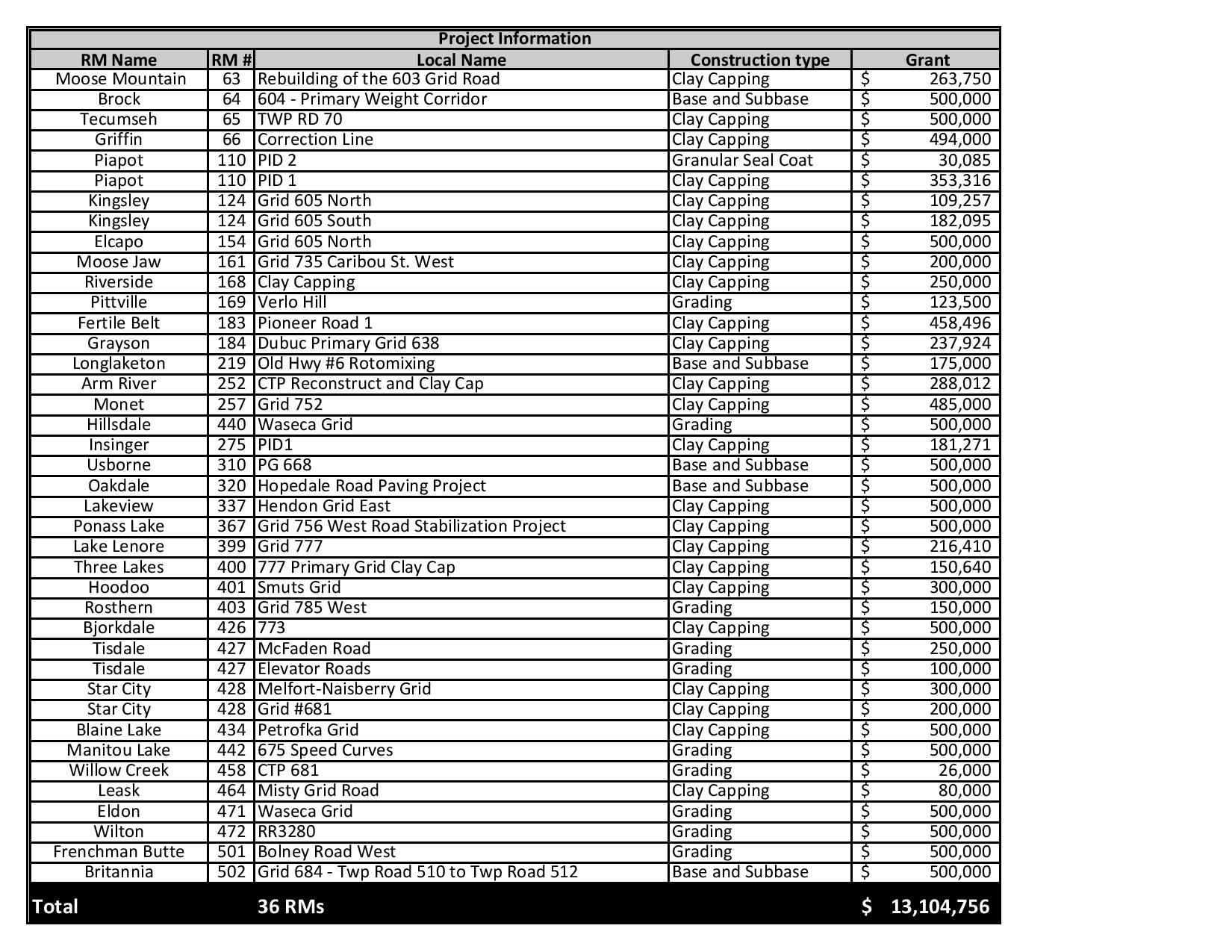More than 30 rural municipalities will receive funding for improvements this year
By Diego Flammini
Staff Writer
Farms.com
The Saskatchewan government is providing millions of dollars to repair roads in rural communities over the next three years.
The province has committed to spending $28 million in 2020, marking the first year of a three-year plan to improve 100 rural roads. The funding is part of the Rural Integrated Roads for Growth (RIRG) program in collaboration with the Saskatchewan Association of Rural Municipalities (SARM).
The funding will also provide grants to improve bridges.
In 2020, 36 rural municipalities will receive up to $500,000 each to cover up to 50 per cent of project costs, totalling more than $13 million in government investments.

“Our government is investing in infrastructure that keeps our rural economies growing and improves safety,” Greg Ottenbreit, minister of highways and infrastructure, said in a June 2 statement. “This program supports rural infrastructure in addition to assisting with the economic recovery from the COVID-19 pandemic.”
Overall, the RIRG will help sectors like agriculture, energy and forestry, SARM said.
“Many rural areas are in dire need of investments to help alleviate the stress on their current infrastructure,” Ray Orb, president of SARM, said in the statement. “The provincial program helps support the cost of constructing and upgrading municipal roads, bridges and culverts in rural Saskatchewan.”
Farms.com has reached out to SARM and the Agricultural Producers Association of Saskatchewan for comment.